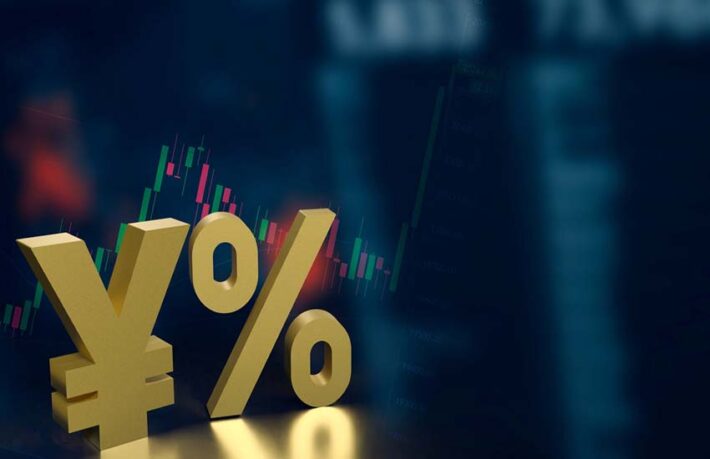Stock Market Indexes Explained: The Key Indicators of Economic Health
Stock indexes are financial indicators that allow analysis of the economic situation of a specific country, set of securities, or industry. In this article, we will discuss what they are, how they operate, and the major indexes worldwide.
For example, in Spain, it is the Ibex-35; in Germany, it is the DAX; and in France, the CAC 40 leads the market. Outside Europe, the Nikkei is the main index in the Japanese market, while in the United States, significant indexes include the Russell 2000, S&P 500, Nasdaq 100, and Dow Jones. Stock indexes are among the most important financial indicators in the investment world due to their ability to reveal the state of a company or group of companies. But the question is: how do they work, and which are the most relevant in the world?
What is a Stock Index?
Stock market indexes are financial indicators that analyze the behavior of a group of assets listed on the stock exchange, functioning as a kind of thermometer to gauge the state of a sector, economy, or industry.
These indexes originated in the 19th century when Charles Dow, founder of The Wall Street Journal, and journalist Edward Jones created the first index in history: the Dow Jones, a financial indicator that analyzes the performance of the largest companies in the United States and remains one of the most important indexes globally.
Index Calculation Methods
By Weighted Prices: The value is calculated through the weighted average of the share prices of the companies that make up the index, with each company having the same weight, regardless of size or capitalization. This formula is used by the Dow Jones.
By Weighted Capitalization: This is the most common calculation method. The formula is based on the market capitalization of each stock, meaning that the weight of companies in the index depends on their market size. The S&P 500 and Nasdaq 100 use this method.
Equal Weighting: This lesser-known formula calculates the value based on the average profitability of the companies in the index without considering market capitalization or share prices. Each company in the index has the same weight. The FT 30 index uses this formula.
What Are Indexes Used For?
Stock market indexes are among the most important indicators in the investment world because they allow analysis of the economic situation of a country, industry, or group of securities. These indexes are used to measure profitability, risk, and market sentiment, making them useful for defining investment strategies.
Beyond their value as a financial thermometer, stock market indexes also serve as the basis for various financial products, such as ETFs (exchange-traded funds), which can replicate the behavior of a stock market index. ETFs are particularly helpful for building diversified investment portfolios, especially for investors with lower risk tolerance. Examples of ETFs that track stock market indexes include CIND.UK (tracking the Dow Jones), NQSE.DE (focused on the Nasdaq), and SXR8.DE (which tracks the S&P 500).
What Factors Can Affect the Behavior and Value of Indexes?
As with other financial instruments, the value of indexes can be influenced by various factors:
- Company Results: Periodically published financial results can impact share prices, subsequently causing indices to rise or fall.
- Changes in Companies: Events such as geographical expansion, management changes, mergers, or acquisitions can also influence the performance of the index to which a company belongs.
- Economic News and Events: Economic reports, news, and central bank meetings can lead to positive or negative reactions in stock market indexes.
- Changes in Composition: Indexes are not static; they are updated regularly to reflect current market conditions. Companies may be added or removed, affecting the index’s value.
Types of Stock Market Indexes
Stock indexes can be classified by sector, asset type, and geography:
By Sector:
- Sectoral: Focuses on companies in the same industry.
- Intersectoral: Includes companies from different industries.
By Asset Type:
- Equity: Focuses on equity assets (stocks).
- Fixed Income: Focuses on fixed-income instruments (bonds).
- Commodities: Analyzes the value of raw materials (gold, silver, oil).
By Geography:
- National: Analyzes companies and assets from a single country.
- International: Includes assets from companies in different countries.
- Global: Includes assets from companies worldwide.
Major World Indexes
Each developed country has its own benchmark index with specific characteristics and companies:
U.S. Stock Indexes:
- Dow Jones: Composed of the 30 most relevant companies listed on the New York Stock Exchange (NYSE).
- S&P 500: Includes the 500 largest U.S. companies by market capitalization.
- Nasdaq 100: Tracks the 100 leading companies in the technology sector.
- Russell 2000: Composed of the 2,000 smallest-capitalization companies in the Russell 3000.
- S&P/TSX 60: Canadian index composed of the 60 largest companies listed on the Toronto Stock Exchange.
European Stock Indexes:
- Ibex-35: Spain’s benchmark index, composed of the 35 largest companies by market capitalization.
- DAX: Germany’s benchmark index, tracking the 40 largest companies listed on the Frankfurt Stock Exchange.
- CAC 40: France’s benchmark index, consisting of the 40 largest companies on the Paris Stock Exchange.
- FTSE 100: U.K. benchmark index, composed of the 100 largest companies on the London Stock Exchange.
- Euro Stoxx 50: Tracks the 50 largest companies by market capitalization in the eurozone.
Asian Stock Indexes:
- Nikkei 225: Japan’s benchmark index, comprising 225 major companies listed on the Tokyo Stock Exchange.
- Shanghai Composite: China’s stock market index, including all companies listed on the Shanghai Stock Exchange.
- Hang Seng Index: The main index in Hong Kong, composed of 42 companies listed on its exchange.
- NIFTY 50: India’s benchmark index, consisting of the 50 largest companies listed on the Indian stock exchange.
How to Invest in Stock Indices?
Investing in stock indices requires an understanding of the index’s characteristics and your own investment objectives and risk tolerance. Like other investments, stock index investments are subject to market fluctuations, so returns are not guaranteed. Investors should clearly define their goals and understand the risks they are willing to take.
There are different ways to invest in stock market indexes, with two prominent options:
- Stocks: Investing directly in the stocks of companies that make up the index. For example, in the Ibex 35, you could invest in companies like BBVA, Santander, or Puig.
- ETFs: Gaining exposure to an entire index by investing in ETFs that replicate its performance. This allows for indirect investment, reducing risk but also limiting potential returns.
Investing in the Index Market with OnEquity
OnEquity allows you to invest in some of the world’s most traded stock indices, including the NASDAQ 100, DOW 30, DAX 40, FTSE 100, and EURO STOXX 50. The platform offers several advantages:
- Access to all major U.S., European, and Asian indices.
- Leverage of up to 1:1.
- Ultra-competitive spreads.
- No commissions.
Conclusion
Stock indexes are indispensable tools for investors, providing a clear and accurate view of market trends. By investing in them, investors can achieve real diversification, minimize risks, and benefit from long-term growth in major economies and sectors.
However, it’s always important to research the market beforehand to determine if investing in stock indexes aligns with your financial objectives. Also, remember never to invest more than you can afford to lose, as all investments carry the risk of loss.


